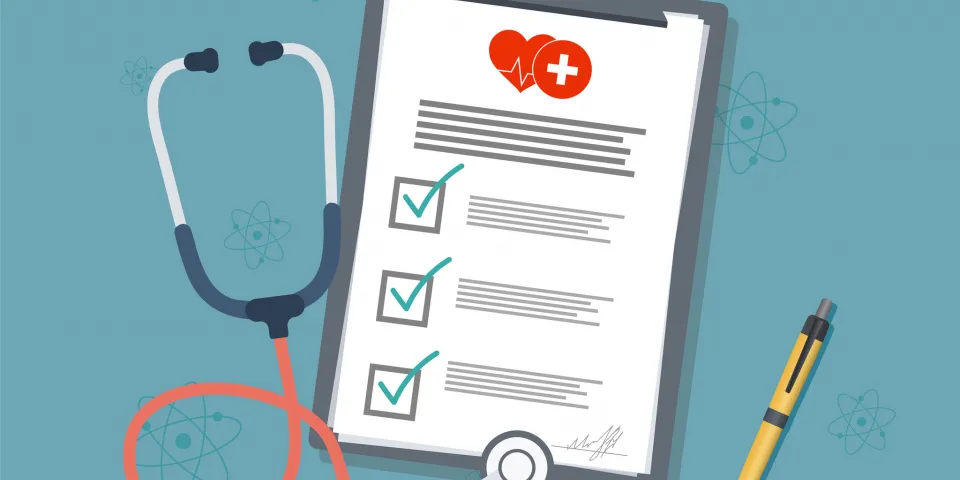Latest
Health Tips to Boost Academic Performance
Feb 22, 2021

While your physical and mental health should always take priority, they might get neglected when life gets busy. The temptation to ignore healthy habits while trying to balance class with work or family life is understandable for many college students. However, physical, mental and emotional health are connected and all are vital to maintaining academic success. Overlooking your health will only make it more difficult to keep up with your commitments. You should look out for your health to feel motivated to achieve your goals.
Here are a few tips to put your health first:
Fuel Up
Treating yourself to junk food too often can take a toll on your mood and academic performance. Instead, fuel your body with quality nutrients that will give you more energy and sharpen your concentration throughout the day.
According to this frequently cited research study, college students who ate three meals per day, including proper servings of fruits and vegetables, had a better academic performance.
You might not think you have the time to eat healthily. As tempting as vending machines and fast food might appear, they ultimately won’t sustain you for long. Junk food is okay every once in a while, but you should not subsist on it for your daily nutrition. It is important to find ways to make healthy eating easy and realistic. For example, try keeping healthy snack options, such as nuts or dried fruit in your car or backpack.
Eating healthy can be inexpensive and convenient when you commit to buy nutritious food at the grocery store. Try stocking your pantry space with low-effort healthy foods such as fruits, vegetables and protein bars. Without the temptation of a lot of sweets and fatty, salty snacks, eating healthy can become more convenient.
Manage Your Mental Health
If you are not feeling your best, then how are you supposed to perform your best? Anxiousness or being overworked directly hinder your academic motivation and ability to focus.
In an American College Health Association report, students cited depression and anxiety as among the top impediments to academic performance. It’s important to develop healthy habits that promote self-care and positivity. Staying organized and making time for yourself is a couple of effective ways to manage your mental health. To avoid feeling burned out, take the time to relax and unwind by doing things you enjoy. You might watch television, play with your children, cook or read.
Another approach is to take advantage of student resources that can help you build a strong support system. Your peers and instructors can be ideal resources to discuss academic-related stress.
Get Active
If you are in good physical health, it can help improve your academic success. According to the World Health Organization, physical activity is a necessity for everyone because it sharpens cognitive skills and drives motivation. This is especially valuable for college students. Although students with busy schedules might struggle to find the time to work out, even the smallest change in habits can help. For example, taking the stairs over the elevator or going for a walk around the block during a study break are options you can fit in your day. These creative solutions will help keep you moving daily, could lead to better sleep and provide an energy boost for your next study session.
College can be a hectic and stressful period for many students, especially for those managing work, family life and other obligations. It’s important to evaluate your lifestyle choices and see if they are helping or hindering your academic success.
Learn More About Our Career Programs
BLS pay estimates calculate the median annual wage for various occupations. Per the BLS the median wage for an occupation is: "The wage at which half of the workers in the occupation earned more than that amount, and half earned less. Median wage data are from the BLS Occupational Employment and Wage Statistics survey." Bureau of Labor Statistics (BLS), U.S. Department of Labor, Occupational Outlook Handbook 2024. BLS median wage estimates do not represent entry-level wages and/or salaries. Multiple factors, including prior experience, age, geographic market in which you want to work, and degree level and field, will affect career outcomes, including starting salary and earnings as an experienced employee. Herzing neither represents that its graduates will earn the median salaries calculated by BLS for a particular job nor guarantees that graduation from its program will result in a job, promotion, particular wage or salary, or other career growth.
Latest
Recent Blog Posts
Subscribe to our Newsletter
Get the latest news you need to know, from study hacks to interview tips to career advancement. Have it delivered right to your inbox biweekly.








